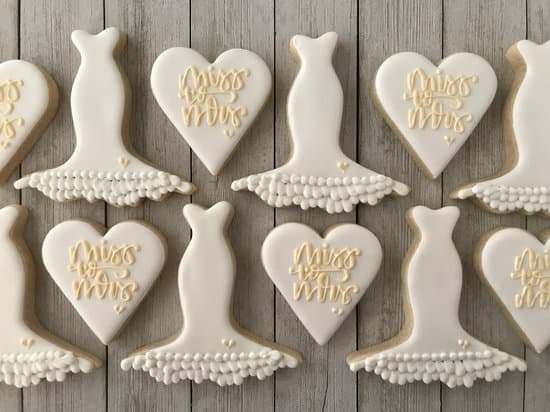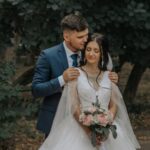When it comes to the momentous occasion of a wedding ceremony, the words spoken by the wedding officiant hold great significance. The role of the officiant goes beyond simply overseeing the legal aspect of the union – they are also responsible for setting the tone, guiding the flow, and imparting meaningful sentiments during the ceremony. From the opening remarks to the pronouncement of marriage, every word uttered by the officiant contributes to the overall impact of this special event.
The words spoken by wedding officiants play a pivotal role in creating a meaningful and memorable ceremony. Their ability to convey love, unity, and commitment through their words sets an emotional and romantic tone for the entire celebration. Throughout the various stages of a wedding ceremony, officiants carefully craft their words to reflect the values and beliefs of the couple while capturing their unique love story.
In this article, we will delve into each stage of a wedding ceremony and explore what wedding officiants typically say. From setting off with opening remarks to pronouncing marriage, we will highlight how officiants express love, unity, and blessings through their carefully chosen words. Let’s take a closer look at how these key figures bring depth and emotion to one of life’s most important moments through their poignant words.
The Opening
When couples begin their wedding ceremony, one of the most anticipated moments is the opening words spoken by the wedding officiant. These initial words set the tone for the entire event and mark the beginning of a couple’s journey into marriage. What do wedding officiants say during this pivotal moment? Here are some typical phrases and words used to start a wedding ceremony:
1. Greeting: Wedding officiants often begin by welcoming guests and acknowledging the significance of the occasion. They may offer warm greetings to attendees and express gratitude for their presence.
2. Opening Remarks: The officiant may share insights about love, marriage, or the couple’s relationship. This could include thoughtful reflections on commitment, partnership, and the joining of two lives.
3. Intention Setting: Some officiants use this time to invite everyone to focus on the purpose of the gathering – to witness and celebrate the union of two individuals.
The opening segment of a wedding ceremony is an opportunity for officiants to create a meaningful atmosphere and establish a connection with those in attendance. These words are meant to capture the essence of love and commitment, setting a beautiful tone for what is to come in the rest of the ceremony.
The Vows
When it comes to wedding ceremonies, the vows exchanged between the couple are often one of the most anticipated and emotional moments. Wedding officiants play a crucial role in guiding the couple through this part of the ceremony, and their choice of words can greatly impact the overall experience. There are several types of wedding vows, each with its own variations in wording used by officiants.
Here are some common types of wedding vows:
- Traditional Vows: These are classic vows that have been used for generations and often include phrases like “to have and to hold” and “for better or for worse.”
- Personalized Vows: Many couples choose to write their own vows, and officiants may guide them through this process or even help them craft personalized vows that still adhere to the traditional structure.
- Religious Vows: For couples who want a religious ceremony, the officiant may use specific religious language or include readings from sacred texts as part of the vows.
- Cultural Vows: In multicultural weddings, officiants may incorporate elements from different cultural traditions into the vows to honor the couple’s heritage.
Wedding officiants have a significant influence on how these vows are presented during the ceremony. Their choice of words, tone, and delivery can set the emotional tone for this pivotal moment. Whether they stick to traditional wording or work with couples to craft personalized vows, officiants play a key role in ensuring that this part of the ceremony is meaningful and memorable.
Unity Rituals
Unity rituals are a beautiful and symbolic part of many wedding ceremonies, adding an extra layer of meaning to the couple’s special day. These rituals often involve the bride and groom each taking part in a symbolic act that represents the merging of their lives and the creation of a new union. Some popular unity rituals include candle lighting, sand pouring, and hand fasting, among others.
During these unity rituals, wedding officiants play an essential role in guiding the couple through the symbolic actions while also speaking words that hold significance for the occasion. For example, during a candle lighting ceremony, the officiant may speak about how the individual candles represent the separate lives of the couple before this moment, while lighting the unity candle symbolizes their commitment to join together as one.
Likewise, when officiants guide couples through a sand pouring ritual, they often weave words into the ceremony that signify how each grain of sand represents a moment or memory from their individual lives, and as they pour them together into one vessel, it signifies their future life together. The accompanying words spoken by officiants during these rituals not only add depth to the symbolism but also serve as a meaningful way to express what marriage means to the couple.
| Unity Ritual | Meaning |
|---|---|
| Candle Lighting | Symbolizes merging of lives and creation of new union |
| Sand Pouring | Represents individual moments merging into shared future |
| Hand Fasting | Signifies binding of two lives together in marriage |
Personalization
When it comes to officiating a wedding, personalization is key in creating a memorable and meaningful ceremony. Wedding officiants often work closely with the couple to personalize the ceremony script and incorporate unique words that reflect their love story and values. This process involves getting to know the couple on a deeper level, understanding their relationship dynamics, and learning about their journey together.
One of the ways in which officiants personalize the ceremony script is by including anecdotes and stories shared by the couple. These personal touches add a heartfelt element to the ceremony, allowing guests to gain insight into the couple’s relationship and experiences. By weaving these unique words into the ceremony script, officiants can create a one-of-a-kind experience that truly represents the couple’s bond.
In addition to storytelling, wedding officiants also collaborate with couples to incorporate special readings, quotes, or cultural traditions that hold significance for them. This could involve including a meaningful passage from a favorite book or poem, incorporating a ritual from their cultural background, or integrating personalized vows written by the couple. The goal is to ensure that every word spoken during the ceremony resonates deeply with the couple and captures their essence as individuals and as partners.
| Aspect of Personalization | Description |
|---|---|
| Anecdotes and Stories | Incorporating personal stories and anecdotes shared by the couple into the ceremony script |
| Special Readings or Quotes | Collaborating with couples to include meaningful passages, quotes, or readings that hold significance for them |
| Cultural Traditions | Integrating rituals or customs from the couple’s cultural background into the ceremony |
Pronouncement
The pronouncement made by the wedding officiant is a significant and memorable moment in any wedding ceremony. This section will delve into the importance of this part of the ceremony, as well as the specific wording commonly used by officiants during this meaningful occasion.
The Significance
The pronouncement of marriage is the moment when the wedding officiant officially declares the couple as married. This pivotal moment holds immense significance, symbolizing the culmination of the couple’s love and commitment to each other.
It marks the end of their previous single lives and the beginning of their journey together as a married couple. The pronouncement sets the tone for the rest of the ceremony and is a pivotal point that guests, as well as the couple, eagerly anticipate.
Specific Wording
Wedding officiants often use traditional phrases when pronouncing a couple as married, such as “I now pronounce you husband and wife,” or “By the power vested in me, I now pronounce you married.” However, there are many variations to this wording that couples can choose from to reflect their personal beliefs and values. Some may opt for more modern or non-religious language, while others may prefer to incorporate cultural or spiritual elements into this declaration.
Customization
In recent years, couples have been increasingly interested in customizing this part of their ceremony to make it unique and personal. They may choose alternative words that better resonate with them and reflect their relationship or may include special rituals or traditions that hold significance to them as a couple. Wedding officiants work closely with couples to ensure that this moment is tailored to their individual preferences, making it all the more special.
Closing
The final part of a wedding ceremony often includes the closing words, blessings, well-wishes, or words of advice from the wedding officiant. This section is a poignant and meaningful way for the officiant to express their hopes and blessings for the newlyweds as they begin their journey together. It also serves as a heartfelt conclusion to the ceremony, leaving the couple and their guests with memorable words to cherish.
Final Blessings
Wedding officiants often conclude the ceremony with a final blessing for the couple. This may involve invoking a higher power or simply conveying heartfelt wishes for love, happiness, and prosperity in their marriage. The wording of these blessings can be traditional or personalized to reflect the couple’s beliefs and values.
Well-Wishes
In addition to blessings, wedding officiants commonly share well-wishes for the newly married couple. These well-wishes may include expressions of hope for a lifetime of love and joy, encouragement to support each other through challenges, and reminders to always cherish their bond. Officiants often use this opportunity to convey positive sentiments that resonate with the couple and their loved ones.
Words of Advice
Some wedding officiants choose to offer words of advice to the newlyweds based on their experiences and wisdom. Whether it’s guidance on communication, commitment, or navigating difficulties in marriage, these words of advice can provide valuable insights as the couple embarks on their shared life journey. Wedding officiants carefully consider what advice will be most meaningful and impactful for each unique couple when crafting this part of the ceremony.
In all instances, whether delivering final blessings, well-wishes, or words of advice during the closing portion of a wedding ceremony, wedding officiants aim to leave a lasting impression that captures the essence of love and commitment between two individuals. What do wedding officiants say in these moments is deeply personal and significant, adding an emotional touch that enhances the overall impact of the ceremony.
Conclusion
In conclusion, the words spoken by wedding officiants play a crucial role in setting the tone and creating a meaningful and memorable ceremony. From the opening remarks that signal the start of the celebration to the heartfelt vows exchanged between the couple, each word uttered by the officiant carries immense significance.
The unity rituals, such as candle lighting and hand fasting, further emphasize the couple’s commitment and love for each other, with carefully chosen words spoken by the officiant to accompany these symbolic acts.
Moreover, one of the most impactful aspects of a wedding ceremony is how officiants work with couples to personalize the script, ensuring that it reflects their unique love story and personal values. The thoughtfully chosen words during this process can truly make the ceremony feel authentic and special. Furthermore, as officiants pronounce the couple as officially married, their specific wording marks a pivotal moment that seals their union in front of loved ones.
Ultimately, as wedding officiants offer final blessings, well-wishes, or words of advice to newlyweds at the conclusion of the ceremony, they encapsulate the joyous atmosphere and set a positive tone for the couple’s journey ahead. Their carefully crafted words undoubtedly contribute to shaping an unforgettable experience for both the couple and their guests.
In essence, what wedding officiants say leaves a lasting impression on all who are present, making their role integral to ensuring a memorable and heartfelt celebration of love.
Frequently Asked Questions
How Do I Start a Wedding Ceremony Script?
To start a wedding ceremony script, begin with a warm welcome to the guests and an introduction of the purpose of the gathering. Then, you can include any readings, prayers, or rituals that are meaningful to you and your partner.
How Do I Customize My Wedding Ceremony Script?
To customize your wedding ceremony script, consider incorporating personal anecdotes, vows, or special traditions that reflect your relationship and values. Work with your officiant to ensure that the script is tailored to your unique love story.
What Should My Wedding Officiant Say?
Your wedding officiant should say words that resonate with you and your partner. This may include words of wisdom, blessings, or quotes that hold significance for your relationship. The officiant’s words should set the tone for a meaningful and memorable ceremony.

I have been involved in marriages for over 20 years helping couples and singles understand more about them.





![What to Say in Thank You Card for Wedding Thank you for celebrating our special day with us. Your presence meant everything. - [Couple’s Name]](https://www.marriagespirit.com/wp-content/uploads/2023/11/wedding-1347-150x150.jpg)